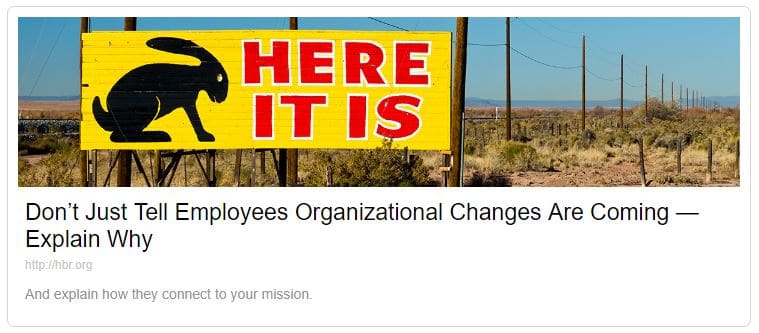“If you don’t like change, you’ll like irrelevance even less”
“If you don’t like change, you’ll like irrelevance even less”
– General Eric Shinseki
Change is hard, and it takes a lot of effort to effect a successful transformation. While every change has an implementation cost, there is also a cost to “institutionalizing” your organization, where people fear change. This can lead to a stale culture which is not welcoming to new hires. Employees look to make a difference when they join an organization and they want to be a part of something where they can share their experiences. If the organization cannot seriously consider their contributions, they will leave, and this will create a revolving door of new hires.
To engage your organization in a change culture:
- When communicating, frame change as an opportunity, not a threat.
- Get your employees used to change by asking for suggestions on a regular basis and follow up with them. This will get people used to the idea that change is “not a big deal”.
- Ask new employees to document what they think should change when they arrive. Review this with them on a regular basis to see if and how their perception changes.
- Don’t allow your organization to fall into a “status-quo trap”, where we fail to evaluate the current situation with the same criteria used for the options for change.
- As the HBR article below says – always explain why change is necessary and what the benefits are.
If your organization is worried about staff retention issues or is frustrated by the time and cost it takes to implement change, connect with me on LinkedIn, or email nick.welham@c-link.consulting and let’s start a conversation to see if I can help.

